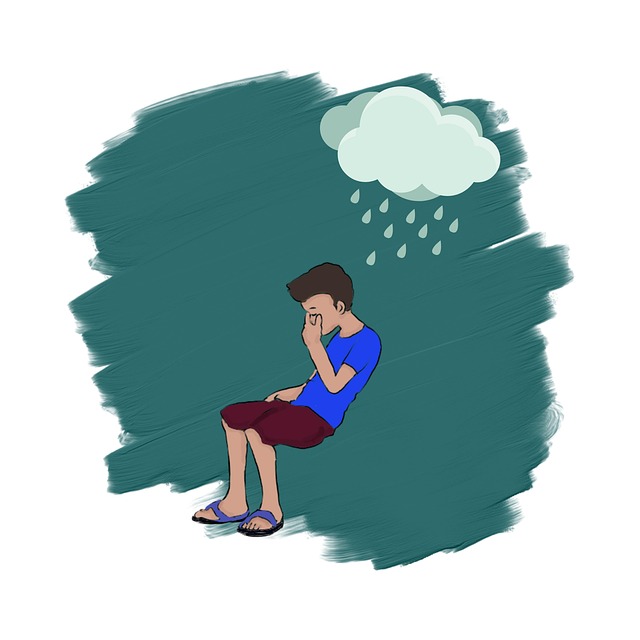In designing mental health education for Colorado Springs, focusing on unique challenges like adolescent conduct disorders is crucial. The program should include Self-Awareness Exercises, Inner Strength Development, and Social Skills Training to empower youth, aligning with effective local therapy methods. Structured modules cover fundamentals to advanced strategies, incorporating local resources and case studies. Crisis Intervention Guidance and emotional regulation skills build resilience, enhancing well-being and reducing disruptive behaviors. Community engagement through partnerships ensures tailored support, fostering emotional intelligence and safety in Colorado Springs Conduct Disorder Therapy contexts.
In Colorado Springs, addressing conduct disorder among youth is a pressing need due to unique societal and geographical challenges. This article explores the design of an impactful mental health education program tailored to this specific issue. We delve into assessing community requirements, structuring an effective curriculum, implementing evidence-based practices, and engaging local communities to foster supportive environments for young people’s development. By focusing on these key areas, the program aims to revolutionize conduct disorder therapy in Colorado Springs.
- Assessing the Need: Understanding Colorado Springs' Unique Challenges for Conduct Disorder Therapy
- Program Structure: Designing an Effective Mental Health Education Curriculum
- Evidence-Based Practices: Incorporating Successful Strategies for Conduct Disorder Treatment
- Community Engagement: Fostering Supportive Environments for Positive Youth Development
Assessing the Need: Understanding Colorado Springs' Unique Challenges for Conduct Disorder Therapy

In designing a mental health education program tailored to Colorado Springs, understanding the city’s unique challenges is paramount, especially when addressing Conduct Disorder in adolescents. Colorado Springs, with its diverse demographics and vast outdoor landscapes, presents distinct social and environmental factors that can influence youth behavior. The high incidence of conduct disorders among teens in this region suggests a need for targeted interventions focused on both individual and community-level changes.
Assessing local needs reveals that many at-risk youth struggle with inner strength and self-awareness, which are crucial elements in managing behavioral issues. Implementing programs that incorporate Self-Awareness Exercises and Inner Strength Development can empower young people to navigate their emotions and impulses constructively. Additionally, Social Skills Training is essential to foster positive interactions and reduce antisocial behaviors, considering the social dynamics unique to Colorado Springs.
Program Structure: Designing an Effective Mental Health Education Curriculum

In designing an effective mental health education curriculum, a structured and comprehensive approach is essential. The program should start with foundational modules on understanding mental health concepts and promoting overall well-being. This includes introducing topics like stress management, emotional intelligence, and early intervention strategies to foster a supportive learning environment. Each module should build upon the previous one, ensuring learners grasp key principles before progressing to more complex issues.
For instance, a tailored curriculum for Colorado Springs could incorporate local resources and cultural considerations relevant to Conduct Disorder Therapy. By combining theoretical knowledge with practical case studies, students gain hands-on experience in risk management planning, a crucial skill for mental health professionals. This structured approach equips learners with the tools to address diverse client needs, ultimately enhancing their effectiveness in treating mental health disorders like Conduct Disorder in a dynamic community setting.
Evidence-Based Practices: Incorporating Successful Strategies for Conduct Disorder Treatment

In designing mental health education programs, particularly for at-risk populations like those dealing with conduct disorders in Colorado Springs Conduct Disorder Therapy settings, it’s paramount to incorporate evidence-based practices that have proven successful in treatment. One such strategy is Crisis Intervention Guidance, which equips individuals and communities with the skills to manage acute situations effectively. This approach fosters a sense of safety and stability, crucial elements in mitigating conduct disorder symptoms.
Additionally, building resilience and emotional regulation skills is integral. By teaching participants to navigate stress and emotions healthily, these programs empower them to cope constructively, reducing the likelihood of disruptive behaviors. Such interventions not only enhance individual well-being but also contribute to a more positive social environment, which is essential for long-term recovery and personal growth in Colorado Springs Conduct Disorder Therapy contexts.
Community Engagement: Fostering Supportive Environments for Positive Youth Development

In designing mental health education programs, particularly for youth, community engagement is a cornerstone for fostering supportive environments that promote positive development. This involves building partnerships with local schools, community centers, and faith-based organizations in Colorado Springs to integrate mental health resources seamlessly into existing services. By creating safe spaces where youth feel accepted and understood, we can encourage open conversations about mental well-being. Programs should be designed to empower young individuals to take charge of their mental health, offering them tools for self-care and crisis intervention.
The inclusion of risk assessment techniques, as guided by professionals, ensures that programs are tailored to address specific needs within the community. This proactive approach, coupled with comprehensive crisis intervention training for both youth and mentors, can significantly mitigate issues like conduct disorders often seen in Colorado Springs. Effective mental health education not only equips young people with coping mechanisms but also fosters a culture of resilience and emotional intelligence, laying a strong foundation for their future well-being.
In designing a mental health education program for Colorado Springs, addressing the unique challenges of conduct disorder therapy is paramount. By combining evidence-based practices with community engagement, we can create an impactful curriculum that supports positive youth development. Integrating these strategies ensures that young people in Colorado Springs receive comprehensive care tailored to their needs, fostering healthier and more resilient communities.














